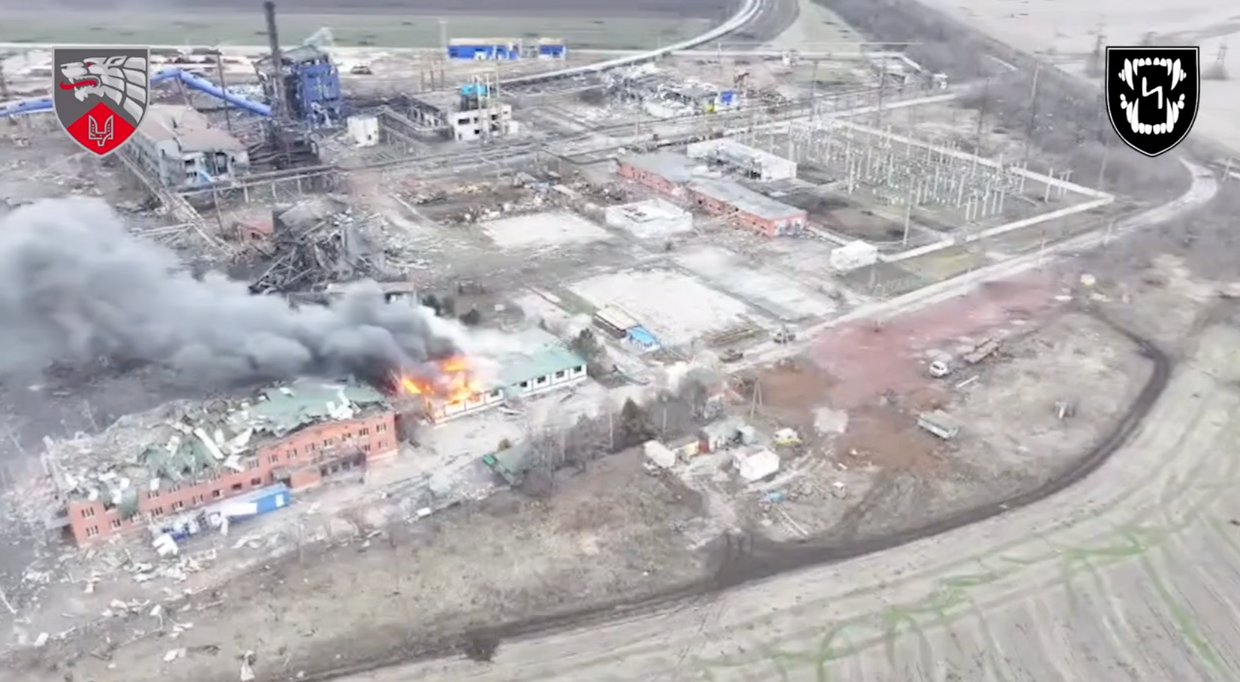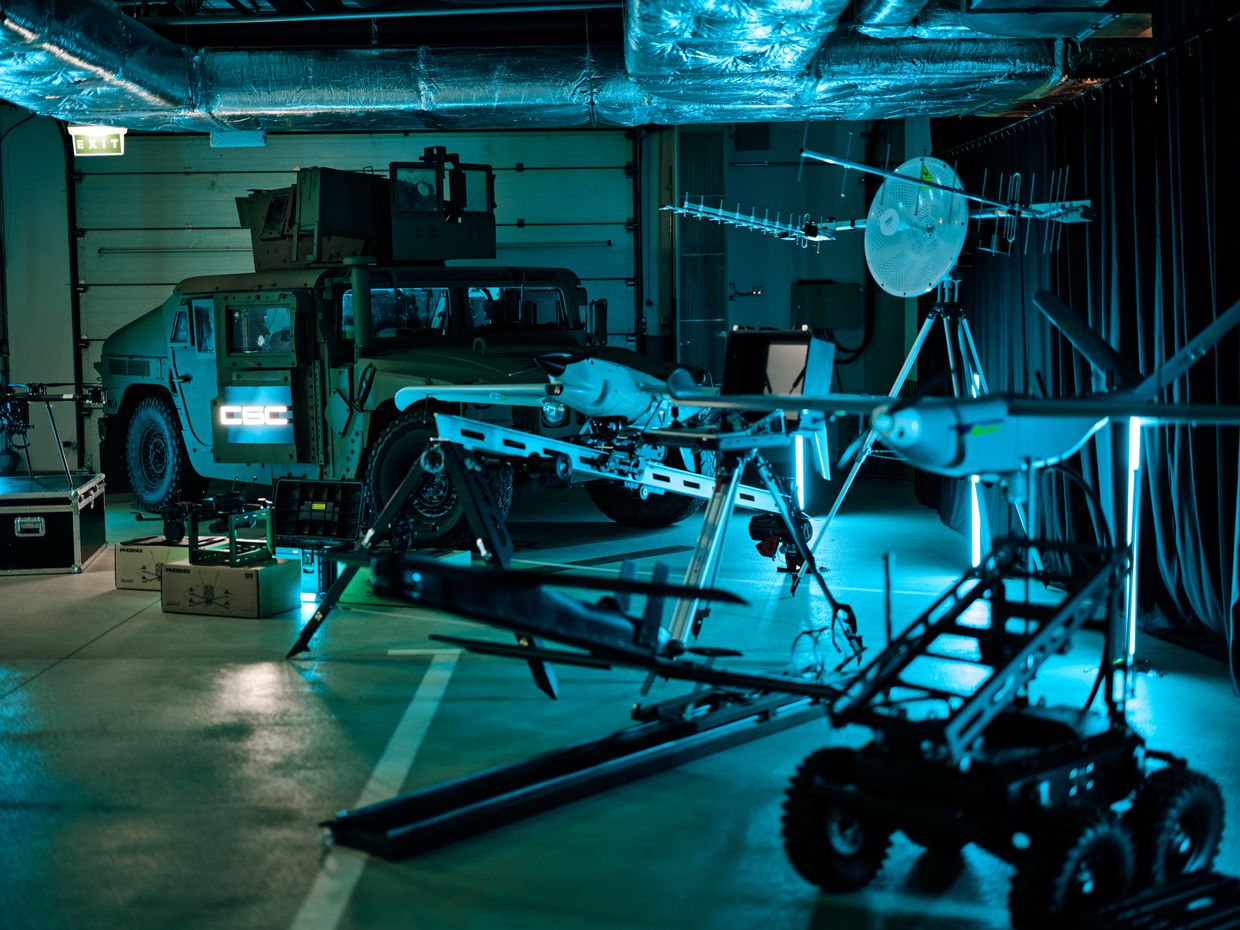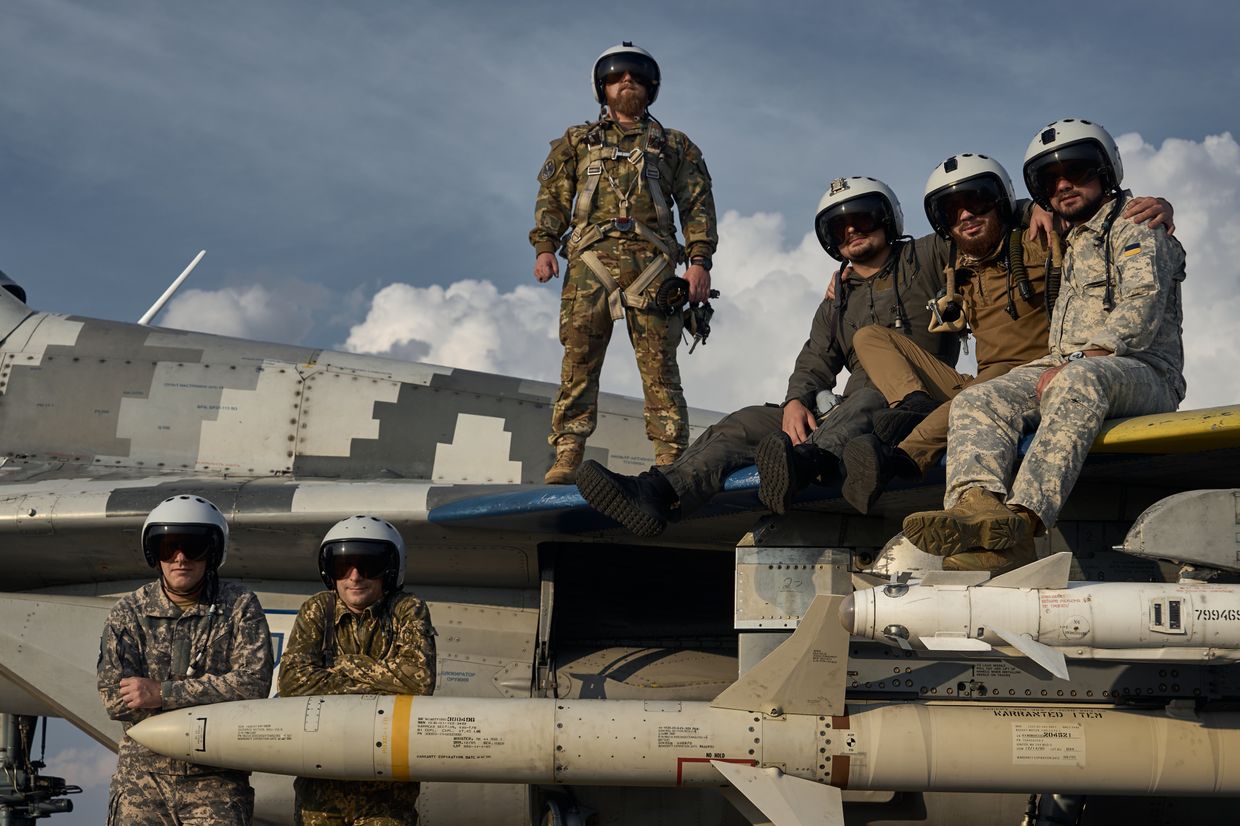Arrests of top commanders in Ukraine underscore political power games, army commanders and experts say

Artillerymen of the French-trained 155th Separate Mechanized Brigade of Ukrainian Armed Forces prepare to fire a French-made Caesar self-propelled howitzer toward Russian positions at an undisclosed location in the Donetsk Oblast, Ukraine on Jan. 6, 2025. (Genya Savilov/ AFP via Getty Images)
Last month, four top-level military commanders in Ukraine were arrested for alleged mismanagement of battlefield operations — in the first criminal investigations of top military leadership since the start of the full-scale invasion.
Three high-ranking officers involved in what’s being called “the generals’ case” — Yurii Halushkin, Artur Horbenko, and Illia Lapin — are accused of failing to defend Kharkiv Oblast during Russia’s renewed offensive in the area in May 2024. Russian troops managed to get several kilometers beyond the border before Ukrainian troops halted the advance.
In a separate case, Colonel Dmytro Riumshyn stands accused of failing to report and prevent desertions in his newly formed 155th Brigade, ultimately leading to 56 soldiers deserting while training in France, and hundreds more — in Ukraine.
While some Ukrainians welcomed the news, some experts and army commanders see it as a heavy-handed attempt to suppress potential military opposition to peace negotiations and damage the popularity of military leadership before possible elections that could be held if the war comes to an end this year.
“These investigations mean that the government is afraid of the military as a political force,” Ukrainian political scientist Yevhen Mahda told the Kyiv Independent.
They also warn of the harm prosecuting high-level commanders can bring to the military during wartime.
Ukrainian law on “combat immunity” passed in 2022 promised commanders freedom to make decisions on the front without legal consequences for their failure. But the arrest of the four top officers shows vestiges of a broken military justice system.
Investigation of Kharkiv Oblast defense
On May 10, 2024, Russian forces crossed the Russian border into Kharkiv Oblast, located in Ukraine’s northeast, swiftly occupying some border villages.
The attack came forty days after Brigadier General Yurii Halushkin was appointed the commander of the Kharkiv Operational Tactical Grouping, responsible for defending the area.
On the second day of the offensive, Halushkin was replaced in his position by Major General Mykhailo Drapatyi. With reinforcements sent in, Ukrainian forces stopped Russia's advance. Some border areas remain occupied to this day, and the fighting continues up to 8 kilometers into Ukrainian territory.
The initial success of the Russian offensive sparked outrage against regional and military leaders for poor defense planning that led to both military losses and thousands of civilians displaced from their homes. The newly occupied territories were already liberated once from occupation in Ukraine’s 2022 counteroffensive in the area.
The State Bureau of Investigation (SBI) launched an investigation into the circumstances around the border’s breach in May. The agency detained Halushkin on Jan. 20 along with two other officers commanding troops in Kharkiv Oblast during the offensive.
“Their negligent attitude to military service allowed the Russian Federation troops to seize part of the territory (of Kharkiv region),” the SBI’s statement said. “Also, the actions of the commanders led to the loss of personnel and weapons, and disrupted the defense of the state border in their area of responsibility.”

Halushkin was accused of assigning inadequate defense positions to the 125th Territorial Defense Brigade led by Lieutenant General Artur Horbenko, and failing to reinforce and support them with artillery and air force.
The inadequate command allegedly led to some units of the 125th brigade deserting their positions, which allowed Russians to advance, according to the SBI.
Horbenko was also accused of failing to properly prepare positions and equip his troops, as well as organize fire support and communication during the fight. “(Horbenko) was unaware of the actual situation on the battlefield,” the SBI said.
Colonel Illia Lapin, a commander of the 415th Rifle Battalion of the 23rd Brigade tasked to defend the area, was accused of inadequate battle management and preparation of defense positions, as well as allowing twelve servicemen to desert positions.
The SBI claimed it received assistance from the Defense Ministry and the Armed Forces Command in arresting the suspects.
But Halushkin’s lawyer Velychko told the Kyiv Independent that the military police found no violation of the military charter in his client’s actions in Kharkiv Oblast during an earlier internal investigation.
Halushkin appealed to the General Staff for reinforcements before the renewed Russian offensive, but “the answer was – you can only rely on what you have,” Velychko said.
“He believes that he had properly used all the forces and means he had (for repelling the attack),” Velychko added.
Halushkin said in a statement published by his lawyer that he will continue defending his command decisions in detention.
“If the General Staff of Ukraine does not have enough brigades and weapons to comply with the standards (of the military charter), it is not the fault of the commanders,” Halushkin wrote.
Government’s show of force
Although President Volodymyr Zelensky said in July that the talks on who’s to blame for Russian success in partially occupying Kharkiv Oblast should be held after the war, he praised the arrests of top commanders on Jan. 20, saying that “no status or past achievements can override the rule of law.”
The court set multi-million-hryvnia bails for the officers. An anonymous donor settled the Hr 5 million (around $118,000) bail for Halushkin on the morning of Jan. 22, while former President Petro Poroshenko publicly offered to do the same on Facebook — in a post he has since deleted.
Hours later, Halushkin was arrested once again without bail just as he was leaving the detention center, drawing both criticism and praise among some military personnel and politicians.
“(The investigators) launched a new criminal case against him three hours before his repeated detention,” Velychko told the Kyiv Independent, adding that the new case was registered less than an hour after Poroshenko’s post.
The SBI claimed it had discovered “new facts” in the investigation and launched a new case under a different article, but Velychko maintains that investigators “simply copied seven volumes of materials from the first criminal case.”
The harsh measures are a “short-sighted and dangerous” tactic, used by the political leadership before the potential upcoming struggle for power to “tame” the military, as it remains the most trusted institution in society according to polls, political scientist Mahda said.
If society accepts these criminal cases against commanders, the country’s political leadership “can swing for the fences, for example, (to prosecute former Commander-in-Chief) Zaluzhny,” he added, referring to Zaluzhny’s continued high popularity among Ukrainians.

The same polls show a significant decrease in trust in the president and the government. Ukrainian authorities might be using “the generals’ cases” to shift the blame.
Riumshyn, former commander of the 155th mechanized brigade “Anna Kyivska,” was also arrested on Jan. 20. The systematic problems in the “French-trained brigade” were reported by Ukrainian and foreign media, embarrassing the Ukrainian leadership, which lauded the 155th brigade as a flagship project for new NATO-trained and armed Ukrainian brigades.
Ukrainian journalist Yurii Butusov, whose extensive report on the failings in the brigade was cited in foreign media, blamed President Zelensky, Defense Minister Rustem Umerov, Commander-in-Chief Oleksandr Syrskyi and other members of the high military command for the many problems beyond Riumshyn’s responsibilities as brigade commander.
“There was a lot of publicity in this situation. Someone has to be the fall guy now,” Riumshyn told journalists in court, explaining why he was arrested.
Despite the publicity of both cases, pre-trial criminal proceedings were closed to the public, and the case materials of Halushkin’s case remain undisclosed, considered as military secrets, even to his defense, Velychko said.
Undermining the army
High military commanders and regular soldiers have since said that the arrests are gravely detrimental to the war effort, as they undermine commanders’ motivation, trust in the higher command, and willingness to act quickly on the battlefield.
“It’s a 100% political case,” Anatolii Kozel, former commander of the 53rd brigade, told the Kyiv Independent. “This does not benefit (the army).”
Lieutenant General Serhii Naiev, former commander of the Joint Defense Forces, criticized the arrests in his interview with a major Ukrainian media Ukrainska Pravda on Feb. 10.
“It is unacceptable that trials of military leaders are launched during the war,” he said, adding that even Russia doesn’t prosecute generals for their failures.
He also put the responsibility on political leadership for Ukraine’s stalled preparation for the Russian invasion in 2022, which led to the occupation of the southern part of the country, deaths of civilians, and significant military losses.
The next day after the publication, Ukrainian media reported that Naiev was appointed as a front-line commander of a small tactical group in Ukraine’s east — a move seen as retaliation for his interview.
Exploiting underdeveloped military justice
A new comprehensive military justice system wasn’t developed in Ukraine after the country gained independence, with the system inherited from the Soviet Union largely dismantled before 2014.
And then Russia invaded in the east and annexed Crimea in 2014. The rising need for a new, reformed system was most visible in the case of Major General Viktor Nazarov.
In 2017, a civilian court gave him a prison sentence for failing to prevent the downing of a transport aircraft with 49 Ukrainian servicemen by Russian mercenaries in the eastern Luhansk Oblast in 2014.
The sentence was welcomed by the families of fallen soldiers and criticized by then-President Petro Poroshenko for placing the blame on Ukraine’s military leadership for the incident.
In 2021, however, Nazarov was acquitted by the Supreme Court, arguing that he would have had no way of preventing the attack. The seven years of controversial proceedings laid bare the lack of a clear framework for tackling these types of cases.
The most recent cases last month are also not the first criminal proceedings with political undertones since the start of President Zelensky’s presidency.

“My case and the case involving (Galushkin, Horbenko, and Lapin) are not parallels. This is one methodology,” Major General Dmytro Marchenko told Ukrainska Pravda in a recent interview on his being a primary subject of the so-called “armored vests case” in 2019.
Serving as a top Defense Ministry official responsible for material supply of the army since 2015, he was arrested in 2019, when the State Bureau of Investigation accused him and several other officials of procuring thousands of low-quality armored vests at inflated prices.
Marchenko was held in a civilian detention center for a month — a decision called “surprising” by the Defense Ministry — and released on a Hr 20 million ($480,000) bail, paid mostly by former President Poroshenko’s family and regular people’s donations.
Marchenko claimed that his case was politically motivated, aimed at damaging then-President Poroshenko. In 2020, a Kyiv court suspended the prosecutor and investigator on the case due to their “biased attitude.”
The investigation of the “armored vests case” essentially froze armored vests procurement in Ukraine until weeks before the full-scale Russian invasion. After it began, all the disputed vests were distributed to Ukrainian soldiers, though the case remained open, Ukrainska Pravda reported, citing Marchenko.
Marchenko commanded the defense of the southern city of Mykolayiv in 2022, helping to successfully stop the Russian advance. On Nov. 8, 2024, he resigned from the military due to health problems.
“Such cases demoralize the military entirely, and cause uncertainty among all levels of command — from platoon leader to the section commander,” Marchenko said in an interview, referring to the ongoing investigation against the Ukrainian officers.












